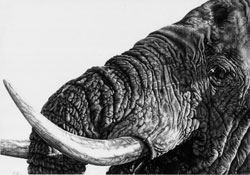Today is my dad's birthday. He's fifty-four, I think, and across the country from me. I sent him a book of W.S. Merwin poems, in part because Merwin is one of my favorites. (I keep a classic of his--River of Bees--taped to the inside of my kitchen cabinets.) And in part because my father is a poet, himself. Like me, he keeps scraps of verses litered around all the spaces he occupies--his truck, his office, and the small laundry room my mother lets him fill with gym bags, golf clubs, and other messy male things. He writes all the time, mostly, it seems, to clear the ideas out of his mind and deposit them onto any waiting bit of paper. If you happen to share a long car trip with my dad, the luxury of the passengar seat comes with the obligation to scribe.
I think my dad and I are a lot alike in the ways we are inspired. It takes motion. You can see it when either of us catch an idea. We get the gleaming eyes of someone lassoing a wild pony--toss the rope quick and hang on. We've both loved travel since we were old enough to get away, I think because of the promise of inspiration out there on the breeze. It hits me when I'm flying, or jogging, or riding my bike to the bar.
For some reason, it makes me think of the physics classes from high school I can barely rememeber and the lowercase 'd' with the line over top--displacement, movement, change. It was the active part of the equation and an indicator that something new was emerging.
Today's my dad's birthday and I'm on a trip. It feels appropriate and I feel great here on my own, appreciating my displacement and the movement ahead. I look outside and see Colorado's wide sky and smell adventure in my four days away. It almost makes me want to write a poem. Because after all those times scribing in the passenger's seat, I've definitely learned one important lesson from my dad--the real inspiration comes when you're drivin'.

